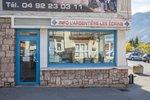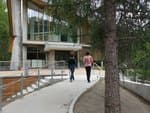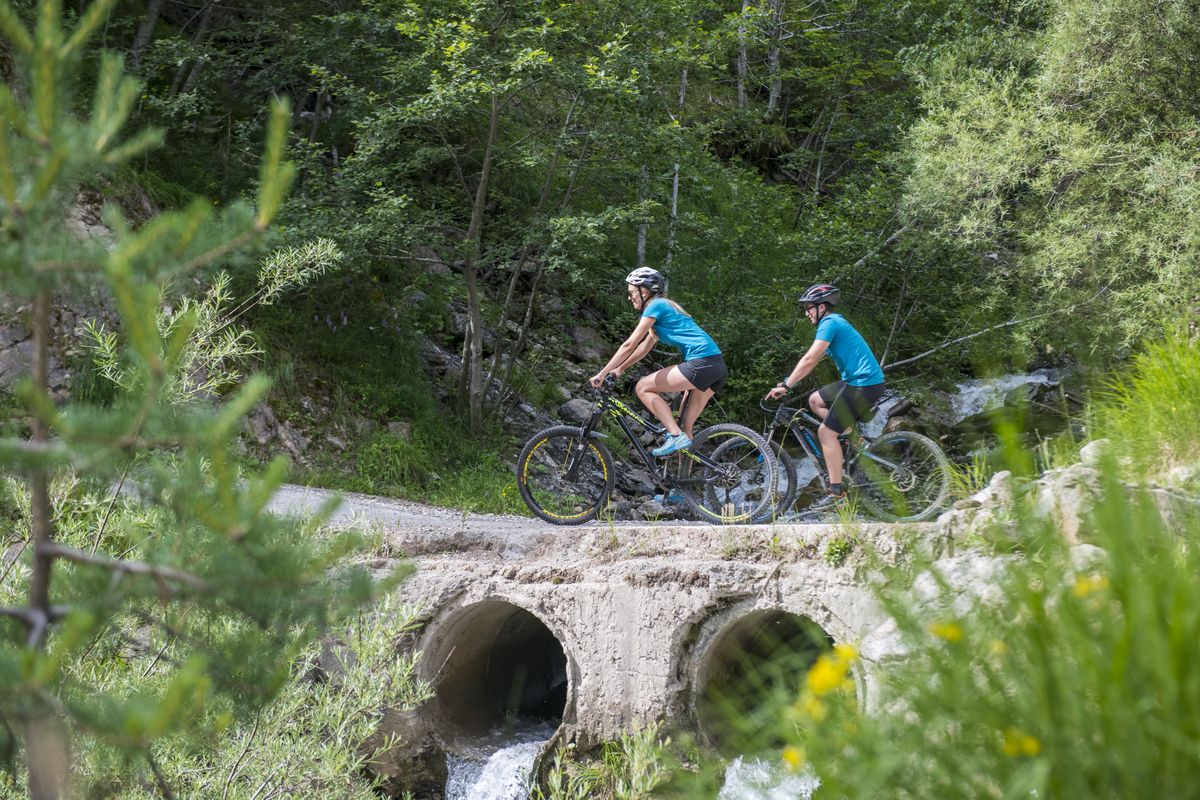
Col d’Anon – Col des Lauzes (no. 7)
Dark spruce forest, light-filled larch forest with grazing sheep, clearings. Running primarily on the north-facing slopes of the Fournel valley, this route takes you to the heights above the Freissinières valley just long enough to be amazed by the panoramic view!
Description
The route starts from the outset along a forest track.
- After the first bend, take the track on the left which leads towards the Col d'Anon, rising through woods and clearings
- At 1,750 metres altitude, just before the sheepfold of Les Lauzes ("Bergerie des Lauzes"), head left onto the track leading off along the hillside and coming out at the Col des Lauzes. Here you see the Freissinières valley. Carry on along the track which offers fine views over the valley
- At the pastoral cabin of Les Balmettes, turn off onto the track on the right leading towards the Col d'Anon
- Below this, turn left onto the path running almost along the hillside to Crouzet. Here, go downhill towards the recently-renovated chalet and continue downhill on a steep path
- Head left to take another path which rises uphill and becomes increasingly grassy
- Turn right down a path running downhill, which then zigzags
- Lower down, you come to a track which leads smoothly back to your starting point.
- Departure : After a bridge, the Pont du Sapey, the route leads towards the Col d'Anon, L’Argentière-La Bessée
- Arrival : After a bridge, the Pont du Sapey, the route leads towards the Col d'Anon, L’Argentière-La Bessée
- Towns crossed : L'Argentière-la-Bessée and Freissinières
Altimetric profile
Recommandations
Rescue services contact details: Secours Montagne(Mountain Rescue): +33 (0)4 92 22 22 22 or 112
Show consideration for the work of farmers, livestock keepers and owners
Take your litter home
Do not take shortcuts across pastureland
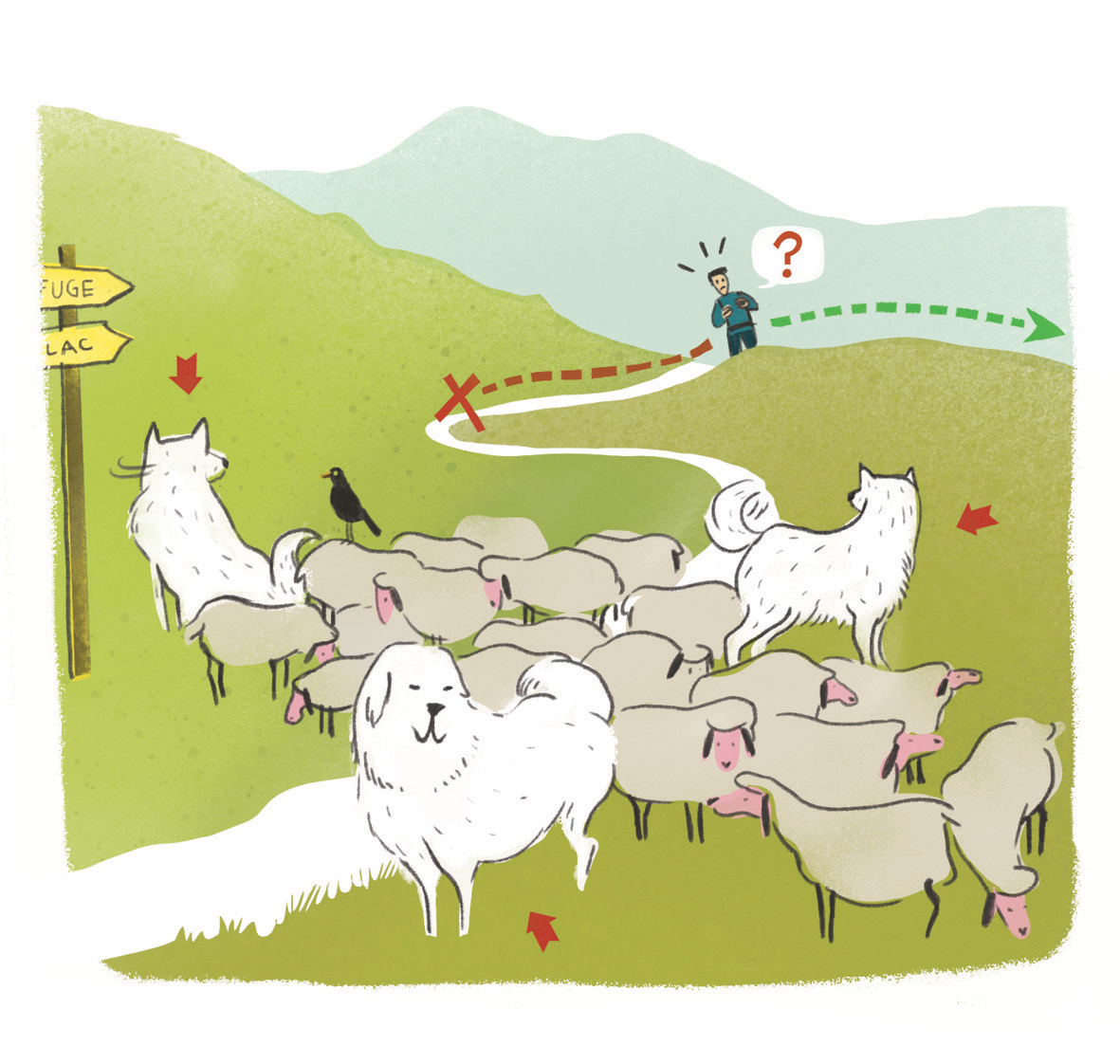 In mountain pastures, protection dogs are there to protect the herds from predators (wolves, etc.).
In mountain pastures, protection dogs are there to protect the herds from predators (wolves, etc.).
When mountain biking, I adapt my behavior by going around the herd, pausing and getting off the bike so the dog can identify me.
Find out more about the actions to adopt with the article "Protection dogs: a context and actions to adopt".
Tell us about your meeting by answering this survey.
Information desks
23 Avenue de la République, 05120 L'Argentière-La Bessée
Vallouise Park house
, 05290 Vallouise
Information, documentation, models, exhibitions, screenings, product sales and works of the Park. Guided tours for school, reservation required. The new Park House opened in Vallouise since June 1, and offers visitors an interactive permanent exhibition inviting to explore the area and its heritage. A temporary exhibition space will allow a renewed offer. Finally, the device is completed by an audiovisual room to organize screenings and conferences Free admission. All animations of the Park are free unless otherwise stated.
Transport
Nearest SNCF train station: L'Argentière-les-Ecrins (www.voyages-sncf.com)
L'Argentière-les-Ecrins / La Salce: taxi (Taxi Pellegrin +33 (0)6 98 88 17 78 / Taxi Billau +33 (0)6 08 03 45 90)
For more information, ask at the Tourist Information Office nearest to the trail starting point >> www.paysdesecrins.com
Access and parking
In L'Argentière-La-Bessée, follow signs for the Fournel valley ("Vallon du Fournel") and the silver mines ("Mines d'Argent"), from the Le Wagonnet roundabout. The route runs uphill above the village along the D432 towards the Pont du Sapey, at 1,320 metres.
Parking :
Sensitive areas
Black grouse - winter
- Impacted practices:
- , Land
- Sensitivity periods:
- JanFebMarAprDec
- Contact:
- Parc National des Ecrins
Thierry Maillet : thierry.maillet@ecrins-parcnational.fr
Membre de l'Observatoire des Galliformes de montagne
Virginie Dos Santos : ogm.vds@gmail.com
Blandine Amblard : ogm.amblard@gmail.com
Short-toed snake eagle
- Impacted practices:
- Aerial,
- Sensitivity periods:
- MarAprMayJunJulAugSep
- Contact:
- Parc National des Écrins
Julien Charron
julien.charron@ecrins-parcnational.fr
Short-toed snake eagle
- Impacted practices:
- Aerial,
- Sensitivity periods:
- MarAprMayJunJulAugSep
- Contact:
- Parc National des Écrins
Julien Charron
julien.charron@ecrins-parcnational.fr
Black grouse - winter
- Impacted practices:
- , Land
- Sensitivity periods:
- JanFebMarAprDec
- Contact:
Black grouse - winter
- Impacted practices:
- , Land
- Sensitivity periods:
- JanFebMarAprDec
- Contact:
- Parc national des Ecrins - 0492402010
Black grouse - winter
- Impacted practices:
- , Land
- Sensitivity periods:
- JanFebMarAprDec
- Contact:
Black grouse - winter
- Impacted practices:
- , Land
- Sensitivity periods:
- JanFebMarAprDec
- Contact:
7 points of interest
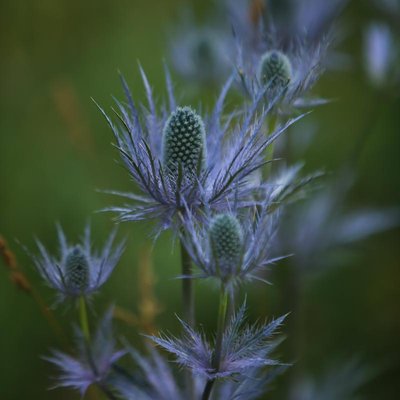
Chardon bleu - Jan Novak  Flora
FloraThe blue globe thistle
The Fournel valley is well known for having the biggest colony of blue globe thistles in the Alps. This colony is growing in Les Deslioures, at the end of the road. But there are other colonies in the valley, like this one. Because this rare species is adapted to high-mountain hay meadows, agro-environmental measures have been introduced to delay grazing or hay cutting until the late summer so that it has time to set seed.
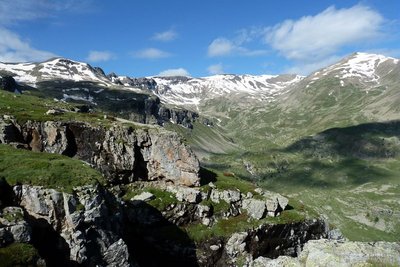
Vue sur le col des Lauzes - Blandine Delenatte - Parc national des Écrins  Pastoralism
PastoralismThe Crouzet-les-Lauzes alpine pasture
This trail passes close to the Cabane des Lauzes, the "base camp" used by the shepherd or shepherdess responsible for the Crouzet-les-Lauzes alpine pasture. The lower areas of this pastureland are difficult to oversee as they are covered by forest where it is easy to lose sight of animals among the larches. The higher areas, exploited in August, are very remote.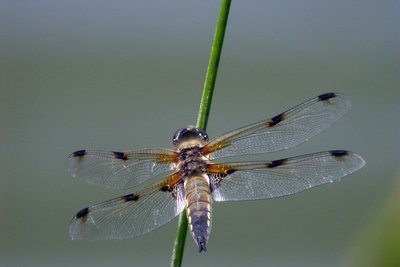
La libellule à quatre taches - Damien Combrisson - Parc national des Écrins  Fauna
FaunaThe four-spotted chaser
Dragonflies can be seen gliding around the lake One of them is relatively easy to identify: the four-spotted chaser. It is called this because there is a spot on each of its four wings. The female lays her eggs on floating vegetation and the larvae are aquatic. The dragonfly feeds primarily on mosquitoes and midges which it catches in mid-air. The male and female also mate while in flight... A real acrobat!
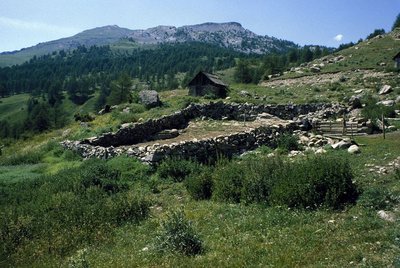
Cabane des Balmettes - Parc national des Écrins  Pastoralism
PastoralismThe Cabane des Balmettes
This cabin stands in an alpine meadow on the south-facing slopes within the municipality of Freissinières. Although most sheep are usually kept for meat, here some of them are milk ewes. And their milk makes an excellent Tomme cheese!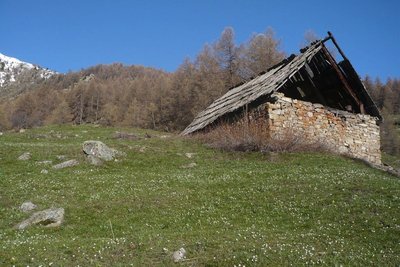
L'ancien hameau de Crouzet - Marie-Geneviève Nicolas - Parc national des Écrins  Vernacular heritage
Vernacular heritageThe abandoned hamlet of Crouzet
Although only one house (recently renovated) remains standing, Crouzet used to be a sizeable hamlet. If you stop for a while and look around carefully, you will make out numerous ruins spread over a wide area, old retaining walls and the traces of old ditches. This place used to have fine meadows which the people of L'Argentière would come here to cut. These meadows have long since disappeared, like the houses, and are now used for grazing. So not only an architectural heritage but also a floral heritage has been lost.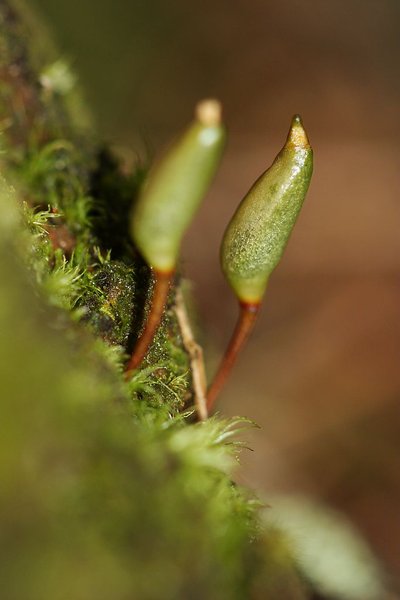
Buxbaumie verte - Combrisson Damien - Parc national des Écrins  Flora
FloraGreen shield-moss
It is only after close inspection of rotting dead wood - pine or larch in the main - that you might hope to spot the very inconspicuous and rare shield-moss. It is a moss which has no leaves and only its sporophytes (tiny spore-containing sacs) give its presence away. It reaches a height of no more than 7 or 8 mm! It is rare because it can only live in ancient forest and it is severely threatened by timber exploitation, so it is an indicator of the good health of a forest. It is a heritage species, that is to say, protected at national level.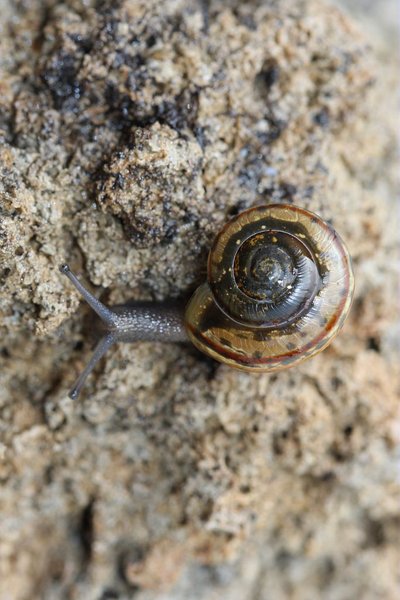
Hélicon des granites - Combrisson Damien - Parc national des Écrins  Fauna
FaunaThe Chilostoma zonatum flavovirens or granite helicon
No, it's a snail, not a musical instrument! This relatively rare mollusc which can reach 2 or more centimetres in diameter is seldom seen in the Pays des Écrins, but appears to enjoy living in the Fournel valley. It takes shelter among cool damp boulders which are, as its name suggests, non-calcareous... Something quite unusual for snails, whose shells are made up essentially of calcium carbonate!
Source

Report a problem or an error
If you have found an error on this page or if you have noticed any problems during your hike, please report them to us here:

